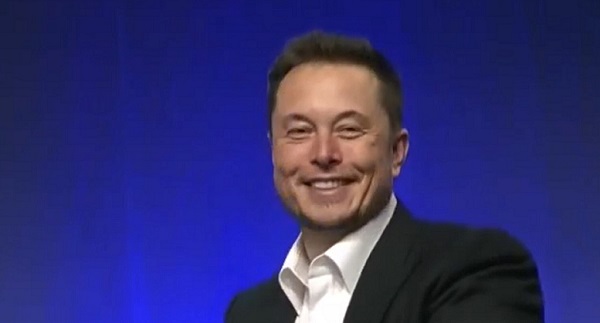Automotive
Canadians rejecting Liberal’s EV mandates because consumers are rational

From Resource Works
Bad policy, not misinformation, is to blame for the decline in EV sales
It was a clever move for federal minister Gregor Robertson to stand in Victoria and blame the oil and auto industries for spreading “misinformation” about electric vehicles.
If people don’t follow a government order, then someone else must have lied to them.
But the truth is simpler, and more uncomfortable for Ottawa and Victoria: Canadians are against aggressive EV mandates because the policies behind them are not based on reality.
Politicians have been pushing electric vehicles (EVs) as a cornerstone of the fight against climate change for years, promising a cleaner future through ambitious mandates and generous rebates.
All of this effort looked good on paper: passing laws, handing out thousands (millions, billions) in subsidies, paving the way for Canada’s transition to an electric future.
But, in real life, it’s just not working out this way.
Why? Because instead of crafting long-term rules based on the realities of infrastructure, cost, and consumer choice, Ottawa rushed ahead with policies that ignored market signals.
They assumed subsidies would keep EV sales flowing indefinitely, only to be shocked when sales plummeted once the rebates dried up.
Canadians are responding rationally to high prices, unreliable charging networks, and impractical mandates.
Not long ago, Ottawa set ambitious, unattainable targets: 20 percent zero-emission vehicle sales by 2026, 60 percent by 2030, and 100 percent by 2035.
British Columbia went further, aiming for 26 percent by 2026, 90 percent by 2030, and 100 percent by 2035.
In theory, it looked achievable. In practice, it’s been a wake-up call.
The numbers tell the story. Statistics Canada reported that EVs accounted for 18.29 percent of new vehicle sales in December 2024. Just four months later, when Ottawa’s iZEV program ran out of funds and provincial rebates ended, that figure crashed to 7.53 percent.
In British Columbia, once a leader in EV adoption, the market share dropped from nearly 25 percent in mid-2024 to 15 percent a year later.
Quebec, long the most EV-friendly province, saw a similar decline when its $7,000 subsidy was slashed nearly in half.
Why? Canadians have been very clear.
Cost is the biggest barrier, according to polls like this one from Ipsos in 2025. But this isn’t the only issue.
Ipsos found 56 percent of British Columbians oppose EV mandates, with even higher resistance among older households and those outside Metro Vancouver. People resent being told they must buy expensive cars they can’t easily charge or fully trust in harsh winters.
Subsidies made high sticker prices tolerable for middle-class families, but when the rebates vanished while mandates and fines remained, buyers walked away.
Barry Penner of the Energy Futures Institute put it bluntly: governments “put the cart before the horse,” demanding widespread adoption before ensuring affordability or infrastructure.
The financial penalties for automakers are steep. Missing federal targets by 10 percent could mean hundreds of millions in fines.
In British Columbia, dealers face $20,000 penalties for every gas-powered car sold over the mandated ratio. Those who can’t comply often buy credits—frequently from Tesla, a California-based company that benefits while Canadian businesses foot the bill. These rules aren’t just hitting “Big Oil”; they’re straining local dealers and sending money abroad.
Infrastructure is another glaring issue. Ottawa estimates Canada has 33,700 chargers today but needs 679,000 by 2040—an average of 40,000 new chargers annually for 15 years, a pace experts call unrealistic.
In British Columbia, Penner notes the province has just 5,000 chargers now and needs 40,000 more by 2030. Meeting the 2035 mandate would also require electricity equivalent to two additional Site C dams, even as B.C. relies on 20 to 25 percent of its power from external sources, often fossil fuels.
Canadians aren’t against cleaner technology—they’re against being forced into choices that don’t fit their lives. The frustration stems from policies that feel disconnected from the realities of cost, convenience, and infrastructure. More blame or moralizing won’t fix this.
Penner has urged governments to “take our foot off the gas and realign our policies with reality.”
That could mean reinstating rebates if mandates persist, investing heavily in charging networks, or setting broader emissions targets that give consumers real choices instead of rigid quotas.
The EV dream will keep stalling unless that happens. It’s not because Canadians don’t know what’s going on; it’s because governments made decisions based on wishful thinking.
Automotive
Elon Musk Poised To Become World’s First Trillionaire After Shareholder Vote


From the Daily Caller News Foundation
At Tesla’s Austin headquarters, investors backed Musk’s 12-step plan that ties his potential trillion-dollar payout to a series of aggressive financial and operational milestones, including raising the company’s valuation from roughly $1.4 trillion to $8.5 trillion and selling one million humanoid robots within a decade. Musk hailed the outcome as a turning point for Tesla’s future.
“What we’re about to embark upon is not merely a new chapter of the future of Tesla but a whole new book,” Musk said, as The New York Times reported.
Dear Readers:
As a nonprofit, we are dependent on the generosity of our readers.
Please consider making a small donation of any amount here.
Thank you!
The decision cements investor confidence in Musk’s “moonshot” management style and reinforces the belief that Tesla’s success depends heavily on its founder and his leadership.
Tesla Annual meeting starting now
https://t.co/j1KHf3k6ch— Elon Musk (@elonmusk) November 6, 2025
“Those who claim the plan is ‘too large’ ignore the scale of ambition that has historically defined Tesla’s trajectory,” the Florida State Board of Administration said in a securities filing describing why it voted for Mr. Musk’s pay plan. “A company that went from near bankruptcy to global leadership in E.V.s and clean energy under similar frameworks has earned the right to use incentive models that reward moonshot performance.”
Investors like Ark Invest CEO Cathie Wood defended Tesla’s decision, saying the plan aligns shareholder rewards with company performance.
“I do not understand why investors are voting against Elon’s pay package when they and their clients would benefit enormously if he and his incredible team meet such high goals,” Wood wrote on X.
Norway’s sovereign wealth fund, Norges Bank Investment Management — one of Tesla’s largest shareholders — broke ranks, however, and voted against the pay plan, saying that the package was excessive.
“While we appreciate the significant value created under Mr. Musk’s visionary role, we are concerned about the total size of the award, dilution, and lack of mitigation of key person risk,” the firm said.
The vote comes months after Musk wrapped up his short-lived government role under President Donald Trump. In February, Musk and his Department of Government Efficiency (DOGE) team sparked a firestorm when they announced plans to eliminate the U.S. Agency for International Development, drawing backlash from Democrats and prompting protests targeting Musk and his companies, including Tesla.
Back in May, Musk announced that his “scheduled time” leading DOGE had ended.
Automotive
Canada’s EV experiment has FAILED

By Dan McTeague
The government’s attempt to force Canadians to buy EVs by gambling away billions of tax dollars and imposing an EV mandate has been an abject failure.
GM and Stellantis are the latest companies to back track on their EV plans in Canada despite receiving billions in handouts from Canadian taxpayers.
Dan McTeague explains in his latest video.
-

 armed forces9 hours ago
armed forces9 hours agoIt’s time for Canada to remember, the heroes of Kapyong
-

 International2 days ago
International2 days agoBBC uses ‘neutrality’ excuse to rebuke newscaster who objected to gender ideology
-

 Agriculture2 days ago
Agriculture2 days agoThe Canadian Food Inspection Agency’s Bloodlust: Worshipping Policies While Ignoring Science
-

 Agriculture2 days ago
Agriculture2 days agoThe Canadian Food Inspection Agency’s Bloodlust for Ostriches: Part 2
-

 Housing1 day ago
Housing1 day agoTrump advancing 50-year mortgage to help more Americans buy homes
-

 Agriculture2 days ago
Agriculture2 days agoWas The Ostrich “Cull” A Criminal Act?
-

 International1 day ago
International1 day agoBBC boss quits amid scandal over edited Trump footage
-

 Frontier Centre for Public Policy2 days ago
Frontier Centre for Public Policy2 days agoNotwithstanding Clause Is Democracy’s Last Line Of Defence








